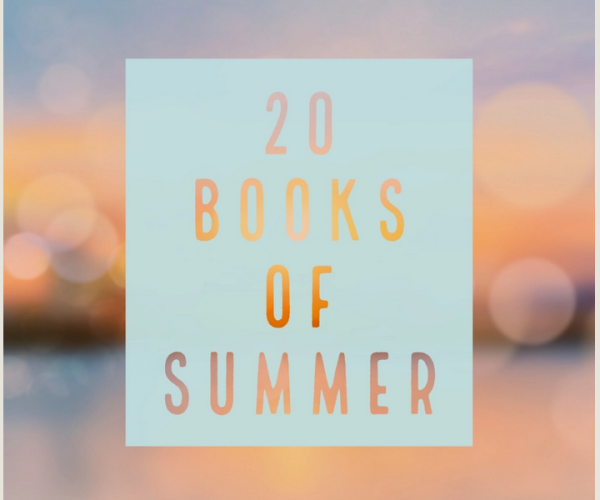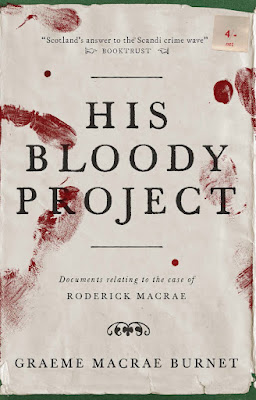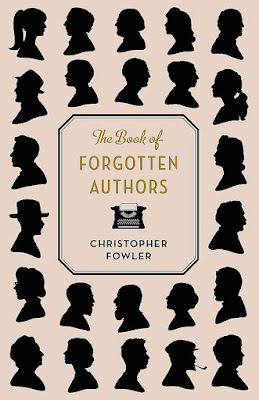20 Books of Summer 2022 - final thoughts
20 Books of Summer ends in three days, and there is no way I’m going to get through my remaining three books by Wednesday, so here are a few thoughts on the seventeen I have read. Of these some I loved, and unfortunately, this year, several I didn’t. At least the duds can now be removed from my shelves and taken to the charity shop.
Hits
For me these six were absolute standouts.The Snow and the Works on the Northern Line by Ruth Thomas (reviewed here) was just wonderful. It had everything I most enjoy in a novel; sharp, realistic social observation, humour, pathos, wit, instantly recognisable locations and a most satisfying ending. Loved it.
His Bloody Project by Graeme Macrae Burnet – who but Macrae Burnet could write
such evocative prose, such an absorbing plot, and such subtle commentary on
Scotland’s feudal system? We know at the outset how the story will end, but we
are still left with as many questions as answers. Absolutely brilliant.
The Pumpkin Eater by Penelope Mortimer (reviewed here); one
woman, many children, obnoxious men, and patriarchal values so entrenched that
even the woman herself has bought into them, all wrapped up in a short but
gripping study of the disintegration of that woman’s personality. Outstanding writing
by a much-overlooked writer.
The Garrick Year by Margaret Drabble (reviewed here); another study of a 1960s middle-class wife and mother, but one who, unlike Mortimer’s Mrs Armitage, fights back. Lighter than The Pumpkin Eater, The Garrick Year ends on a more hopeful note, but whether that note is really hopeful, or perhaps just resignation in disguise, is left to the reader to decide.
The Book of Forgotten Authors by Christopher Fowler (reviewed here). I loved this, and ended up with a long list of new authors to be investigated. Fowler writes with such wit, and has dug up so many interesting snippets about long lost (and in some cases, well lost…) writers, that the book is a joy to read in itself. Highly recommended.
The Feast by Margaret Kennedy (reviewed here); I only read
this because I found it in a charity shop and simultaneously read Jacqui Wine’s
enthusiastic review (here). Serendipity. As with His Bloody Project, the reader knows
at the outset that calamity will occur at the end – but here the question is not what will happen, but who
will be saved, and who lost? And
even more importantly, why? The Feast is the story of one week at a run down
hotel as its staff, owners and guests each deal with their own problems; it’s a
fine evocation of life in 1940’s England, and a morality tale that manages
never to be heavy-handed. Thank you Jacqui!
Misses
Gilead by Marilynne Robinson. I so wanted to like this book;
it’s a great favourite with Simon of Stuck in a Book and many others. To me, unfortunately, it was one long trudge. The parts about the American Civil
War and the abolitionists were interesting, but the narrator’s endless harping
on about the meaning of various bits of scripture had me longing to get to the
last page, and for all the wrong reasons. Fundamentally I think I was just not an
intelligent enough reader for the erudite Robinson.
Honest Doubt by Amanda Cross (reviewed here). Cross (aka Professor Carolyn Heilbrun)’s Kate
Fansler detective stories have accompanied me through life. Even today, maybe
thirty or more years since I first read No Word From Winifred, I still think often of
Kate’s wit, glamorous lifestyle, and feminist thoughts on women writers past
and present. Like Heilbrun (I suspect) I would love to be Kate, a smart
academic living with the perfect man in a penthouse on the Upper Side. She
drinks, she smokes, she lets her mind wander in all directions. What a role
model.
How sad I was, then, to find Heilbrun’s last Fansler book, Honest Doubt,
to be so terribly lacking. Kate makes only a cameo appearance in a plot so ridiculous even she can’t save it. This book was intended to be an homage to a
particular Agatha Christie novel – one which, although it’s often considered to
be a Christie masterpiece, I’ve always thought pretty poor. I wish I had never
read Honest Doubt, and I’m now going to banish it from my memory in order to
preserve my ideas of both Kate and Heilbrun as the women I’d most like to have
been.
Artistic Licence by Katie Fforde (reviewed here). I think my
review says all I have to say about this book. 'Not one of Fforde’s best' is a
bit of an understatement. Irritating heroine, annoying characters, nonsensical story,
and far too much ‘pretend poverty’.
Nine Coaches Waiting by Mary Stewart (reviewed here); another disappointment
from a usually reliable author. I love Stewart’s feisty heroines in Wildfire at
Midnight and Madam, Will You Talk. Linda Martin, however, comes across as a pathetic
nitwit, and her 'hero' as a violent self-obsessed bully. Such a shame, and should finally teach me to stop judging books by their covers.
Olive Kitteridge by Elizabeth Strout (reviewed here.) Like Gilead, this is a Pulitzer
Prize winner. Together I think they have done an excellent job of dissuading me
from reading anything else approved by the Pulitzer judges, ever. Dull, dull,
dull and with a central character for whom I could feel no empathy whatsoever.
The Shape of Water by Andrea Camilleri (reviewed here.) This first book in the immensely
popular Inspector Montalbano series left me confused, slightly bored, and more
than a little concerned by the esteemed police detective’s highly questionable
attitude to women.
Middling
I've yet to get to Dara McAnulty's Diary of a Young Naturalist and Ross Macfarlane's Edward Kane and the Parlour Maid Murderer, and I've only just started my re-read (after many years) of Natalie Goldberg's Writing Down the Bones. I have every intention of getting them all read before Christmas.
20 Books of Summer is a good way to clear some books from your shelves. I’d probably have read my 2022 favourites at some point anyway, but I’m so glad this challenge pushed me in the direction of all six of them – especially The Snow and the Works on the Northern Line, whose promising title, one that sums up real life in London for so many of us, more than delivers.









I'm glad you enjoyed The Snow, I had my friend Ali's copy and passed it on to my friend Emma and we all loved it! I managed my 20 just and was pleased to have got that many books off the oldest bit of the physical TBR, which I probably wouldn't have done without the challenge.
ReplyDeleteSounds like a mixed bag! Interesting that Garrick Year was one of your hits, because I found it quite insufferable :D But with you on The Feast and The Pumpkin Eater, and lots to enjoy in Fowler's book too.
ReplyDeleteDevastated about Gilead, of course! I did learn from my book club that it's not for everyone. When reading it originally, I did wonder if you had to be a Christian to fully value it - it's so unusual (and, for me, joyful) to get a thorough and generous exploration of being a person of faith in a novel, and I appreciated that so much.
And interesting that Nine Coaches Waiting was a dud, as others have told me that's her best, and I've been keeping an eye out for that reason!
Nice! I need to check some of these. The Book of Forgotten Authors could be a dangerous book for my TBR, lol.
ReplyDeletehttps://wordsandpeace.com/2022/09/02/20-books-of-summer-2022-its-a-wrap/
I very much enjoyed the list! I have a copy of Fowles' Forgotten Authors, which has provided a lot of enjoyment during the odd browse, but which has been fatal for keeping the TBR mountain under control. Despite having Gilead lying about for years & years, I've never quite gotten up the nerve to approach it; in fairness, however, I did read & very much enjoyed, "Lila" which is (I think) either the last, or next to the last, of Robinson's Gilead boxes. Like you, I loved, loved, loved the early Amanda Cross novels (dear Amanda did have quite the dream life, didn't she? Including the trust fund!) but dropped off reading the series about midway; missing the disaster that is "Honest Doubt." I had to laugh at your remark about the Pulitzer (I differ about "Olive Kitteridge," which I liked a great deal, but I'm usually pretty skeptical about the winners of this particular prize). I very much enjoyed "Nine Coaches" when I read it years ago. I'm now wondering if I missed something; you've given me a perfect excuse for a re-read! Lastly, I'm also curious about Margaret Kennedy's The Feast, which sounds precisely like the kind of thing I'd enjoy.
ReplyDelete